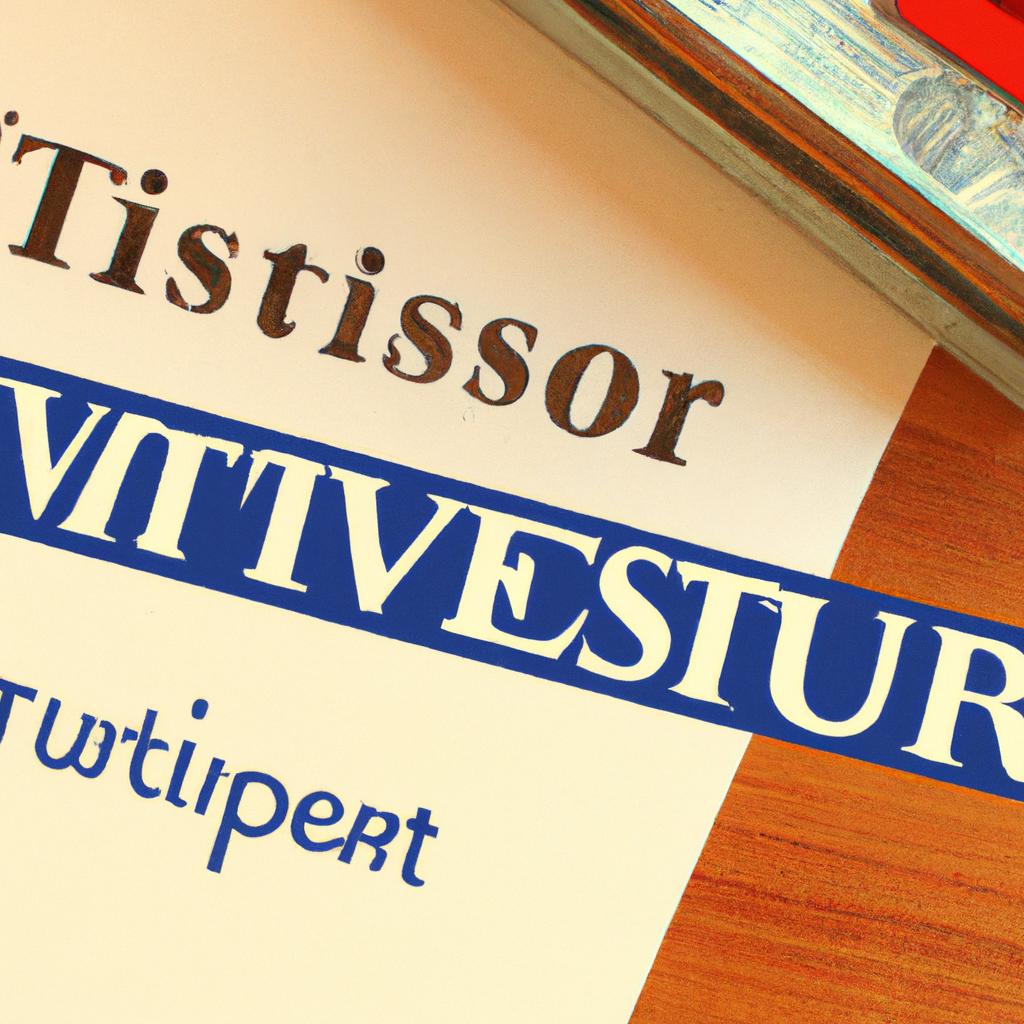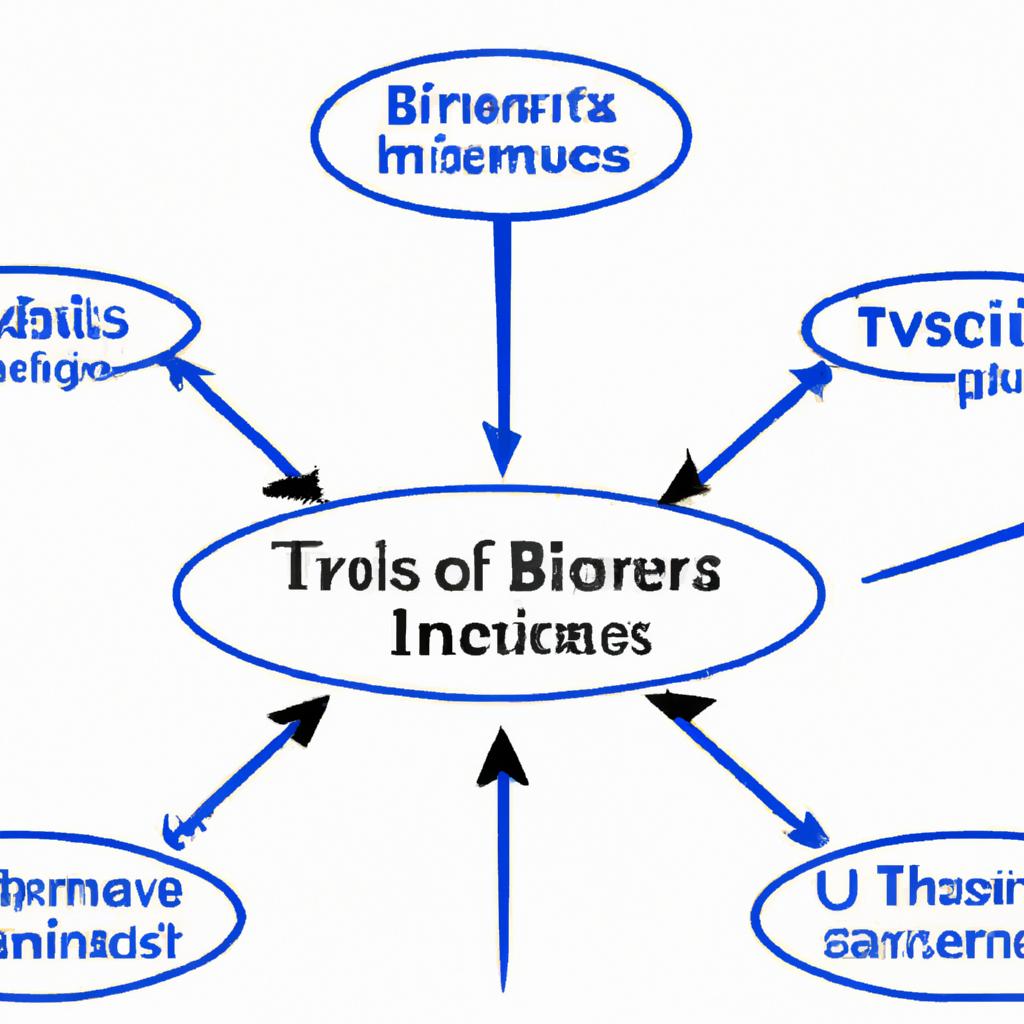In the intricate world of estate planning and trust administration, one term that often emerges is the inter vivos trust. Also known as a living trust, this legal arrangement is a powerful tool for individuals seeking to protect their assets and ensure a smooth transfer of wealth to their beneficiaries. At Morgan Legal Group in New York City, we specialize in crafting meticulously tailored inter vivos trusts to meet our clients’ unique needs and goals. Let us guide you through the nuances of this crucial estate planning tool and help secure your legacy for future generations.
Understanding the Inter Vivos Trust in Estate Planning
Inter vivos trusts, also known as living trusts, are an essential tool in estate planning for individuals looking to protect their assets and ensure their wishes are carried out after they pass away. These trusts are created during the settlor’s lifetime and can be revocable or irrevocable, depending on the individual’s preferences and needs.
One of the main advantages of an inter vivos trust is that it allows for the seamless transfer of assets to beneficiaries without the need for probate, which can be a time-consuming and costly process. Additionally, inter vivos trusts offer privacy, as they are not subject to public record like a will. By establishing an inter vivos trust, individuals can rest assured that their assets will be managed and distributed according to their wishes, providing peace of mind for both the settlor and their beneficiaries.

Key Benefits of Establishing an Inter Vivos Trust
Establishing an inter vivos trust, also known as a living trust, can provide numerous benefits for individuals looking to plan for the future of their assets and finances. One key advantage of this type of trust is the ability to avoid probate, which can be a lengthy and expensive process. By placing assets into a trust during your lifetime, you can ensure that they will pass directly to your beneficiaries without the need for court intervention.
Additionally, an inter vivos trust offers privacy and flexibility in the distribution of assets. Unlike a will, which becomes public record upon your passing, a trust allows for a private transfer of assets outside of probate. This can be especially beneficial for those looking to keep their financial affairs confidential. Furthermore, a trust can be customized to fit your unique needs and wishes, providing a level of control over how your assets are distributed both during your lifetime and after your passing.

Determining If an Inter Vivos Trust is Right for You
An inter vivos trust, also known as a living trust, is a legal document created during the grantor’s lifetime to hold assets on behalf of beneficiaries. The trust becomes effective immediately and can be revoked or amended by the grantor at any time. This type of trust is commonly used to avoid probate, provide for incapacity, and control the distribution of assets upon the grantor’s death.
Before establishing an inter vivos trust, you should consider the following factors:
- Size of your estate
- Complexity of your assets
- Privacy concerns
- Desire for asset management during incapacity
| Pros | Cons |
|---|---|
| Avoids probate | Requires funding the trust |
| Provides privacy | Costly to set up |
| Offers flexibility | Potential for misuse by trustee |

Important Considerations When Setting Up an Inter Vivos Trust
When setting up an inter vivos trust, there are several important considerations to keep in mind. This type of trust, also known as a living trust, is created during the grantor’s lifetime and can be a valuable tool for estate planning. Some key factors to consider include:
- Trustee Selection: Choosing the right trustee is crucial, as this person will be responsible for managing the trust assets and carrying out the grantor’s wishes.
- Asset Funding: It is essential to properly fund the trust by transferring assets into it. Failure to do so could result in the assets being subject to probate.
- Beneficiary Designation: Clearly identifying the beneficiaries of the trust and specifying how and when they will receive distributions is important to avoid confusion and potential disputes.
Additionally, working with an experienced estate planning attorney can help ensure that the inter vivos trust is set up correctly and aligns with your overall estate planning goals. By carefully considering these factors and seeking professional guidance, you can create a trust that provides for your loved ones and protects your assets in the future.
Q&A
Q: What is an inter vivos trust?
A: An inter vivos trust, also known as a living trust, is a legal arrangement where a person transfers ownership of their assets into a trust during their lifetime.
Q: How is an inter vivos trust different from a testamentary trust?
A: Unlike a testamentary trust, which is created upon the death of the individual, an inter vivos trust is created while the individual is still alive.
Q: What are some benefits of creating an inter vivos trust?
A: Some benefits include avoiding probate, providing for incapacity, maintaining privacy, and potentially reducing estate taxes.
Q: Who can create an inter vivos trust?
A: Any individual who is of sound mind and legal age can create an inter vivos trust.
Q: Can assets be added or removed from an inter vivos trust?
A: Yes, assets can be added or removed from an inter vivos trust during the creator’s lifetime.
Q: Are there any drawbacks to creating an inter vivos trust?
A: Some drawbacks may include the cost of establishing and maintaining the trust, as well as the potential loss of control over assets placed in the trust.
Q: How can someone set up an inter vivos trust?
A: An individual can set up an inter vivos trust by consulting with a qualified estate planning attorney to draft a trust agreement and transfer ownership of assets into the trust.
Wrapping Up
In conclusion, understanding inter vivos trusts can provide individuals with a valuable estate planning tool to ensure their assets are protected and distributed according to their wishes. Whether it’s for tax planning or wealth transfer purposes, this type of trust offers flexibility and control during one’s lifetime. By seeking the advice of legal and financial professionals, individuals can make informed decisions about their inter vivos trust and ultimately secure their legacy for future generations.
 Have you ever heard the term “inter vivos trust” and wondered what it means? Maybe you’ve come across it in a legal document or heard it used in a conversation about estate planning. Whatever the case may be, this article will provide you with a comprehensive understanding of what an inter vivos trust is, its benefits, and how it works.
Have you ever heard the term “inter vivos trust” and wondered what it means? Maybe you’ve come across it in a legal document or heard it used in a conversation about estate planning. Whatever the case may be, this article will provide you with a comprehensive understanding of what an inter vivos trust is, its benefits, and how it works.
So, what exactly is an inter vivos trust? In simple terms, it is a legal arrangement where a person (the grantor) transfers their assets to a trustee for the benefit of another person (the beneficiary). This type of trust is also known as a living trust or trust inter vivos, which derives from the Latin term for “between the living.”
Now, let’s dive deeper into the specifics of inter vivos trusts and their key characteristics.
1. Difference between Inter Vivos Trust and Testamentary Trust
One significant difference between an inter vivos trust and a testamentary trust is when they become effective. An inter vivos trust takes effect during the lifetime of the grantor, while a testamentary trust is created through a will and becomes effective after the grantor’s death.
2. Revocable vs. Irrevocable Inter Vivos Trust
An inter vivos trust can be either revocable or irrevocable. A revocable trust means that the grantor has the power to make changes or even revoke the trust at any time during their lifetime. In contrast, an irrevocable trust cannot be modified or revoked once it is established.
3. Types of Assets That Can Be Put in an Inter Vivos Trust
Almost any asset can be placed in an inter vivos trust, including real estate, cash, investments, and personal property. The benefit of putting assets in a trust is that they are protected from probate, which can be a lengthy and expensive process. By avoiding probate, the assets in the trust can be distributed to the beneficiaries more efficiently.
4. Benefits of an Inter Vivos Trust
a. Avoiding Probate
As mentioned earlier, one of the significant benefits of an inter vivos trust is avoiding probate. Probate is a legal process where the court oversees the distribution of a deceased person’s assets. It can be costly, time-consuming, and may not align with the grantor’s wishes if they have a specific plan for their assets.
b. Maintaining Control and Privacy
By establishing an inter vivos trust, the grantor retains control over their assets during their lifetime and can dictate how they want them to be managed and distributed after their death. Additionally, an inter vivos trust is a private arrangement and does not become public record like a will, providing greater privacy for the grantor and beneficiaries.
c. Protection from Creditors and Lawsuits
Assets in an inter vivos trust are typically protected from the grantor’s creditors and any potential lawsuits. This means that even if the grantor faces financial problems, their assets in the trust will remain safe.
5. Tax Implications of an Inter Vivos Trust
Another significant advantage of an inter vivos trust is its tax benefits. Under current tax laws, the assets held in a revocable inter vivos trust are considered part of the grantor’s estate, and they may still have to pay estate taxes. However, an irrevocable trust can remove assets from the grantor’s estate and help reduce estate taxes.
6. Case Study: Benefits of an Inter Vivos Trust
Let’s look at a hypothetical scenario to understand how an inter vivos trust can benefit individuals and families. John and Sarah have a significant amount of assets, including a family home, investments, and valuable antiques. They want to ensure that their assets are protected and distributed according to their wishes.
They decide to establish an irrevocable inter vivos trust, with their two children as beneficiaries. This trust allows them to maintain control and privacy during their lifetime and provides protection from creditors and lawsuits. It also helps reduce their estate taxes, ensuring their children receive the maximum benefit.
7. Practical Tips for Setting Up an Inter Vivos Trust
a. Seek Professional Guidance
Establishing an inter vivos trust is a complex legal process, and it’s crucial to seek professional guidance from an estate planning attorney. They can help you understand the various options, tax implications, and guide you through the legal requirements.
b. Choose a Trustee Wisely
The trustee is responsible for managing the assets in the trust and distributing them to the beneficiaries. Therefore, it’s essential to choose someone who is trustworthy and has the financial expertise to handle the assets.
c. Update the Trust Regularly
Life is constantly changing, and so should your trust. It’s essential to review and update your trust regularly, especially when there are significant life events such as marriage, divorce, or the birth of a child.
Conclusion
In summary, an inter vivos trust, also known as a living trust, is a legal arrangement that can provide significant benefits for individuals and families. It allows for greater control over assets, privacy, protection from creditors and lawsuits, and tax benefits. It’s essential to seek professional guidance and regularly review and update your trust to ensure it aligns with your wishes. Consider exploring the option of an inter vivos trust when planning your estate to enjoy these benefits and more.

